This is Part 1 of a BuzzFeed News investigation.
To read the rest of the series click here.
When Tony Robbins leaps onstage in arenas around the world, under strobe lights and pulsing speakers, he’s greeted by thousands of screaming fans. They clap with him, jump with him, and when he puffs his chest and lets out a primal roar, they roar with him too.
The world’s most famous self-help guru whips crowds into fits of euphoria few pop stars could dream of, but many of his fans are grappling with life’s most serious problems. Victims of sexual and physical abuse, along with people who struggle with addiction and have mental illnesses, pay thousands of dollars to see him on the promise he has the power to “transform your life” and “rewire your brain.”
At the core of Robbins’ teachings is the message that his followers should not see themselves as victims, and should instead view their pain as something they have the power to “destroy.” He claims to have revolutionized millions of lives with this philosophy, while building a multibillion-dollar business and working with celebrities from Donald Trump and Bill Clinton to Oprah and the Kardashians. Access to his most exclusive membership program has cost as much as $85,000 a year.
But behind that dazzling veneer, Robbins guards his empire with intense secrecy. Employees are bound by strict confidentiality agreements, and audiences who attend his multiday coaching camps must sign contracts forbidding them from recording what goes on inside.
A yearlong investigation by BuzzFeed News, based on leaked recordings, internal documents, and dozens of interviews with fans and insiders, reveals how Robbins has berated abuse victims and subjected his followers to unorthodox and potentially dangerous techniques. And former female fans and staffers have accused him of inappropriate sexual advances.
Two former followers who went on to work for Robbins provided BuzzFeed News with signed statements swearing under oath that they felt he had sexually harassed them by repeatedly pursuing them after they made clear they weren’t interested. Two more women who worked as his assistants said Robbins expected them to work alone with him when he was naked in his hotel room or in the shower. And another former employee said she was fired after having a consensual sexual relationship with Robbins. The events described by all five women took place in the 1990s and early 2000s, when Robbins’ fame was skyrocketing and before he married his second wife.
View this video on YouTube
Secret recordings and transcripts from inside his events reveal Robbins has unleashed expletive-laden tirades on survivors of rape and domestic violence after inviting them to share their stories in front of a vast audience. “She’s fucking using all this stuff to try and control men,” he said after one woman said she had been raped. When, in 2018, another woman said her husband was physically violent and emotionally abusive, Robbins accused her of “lying” and asked: “Does he put up with you when you’ve been a crazy bitch?”
Interviews and records reveal how Robbins has created a highly sexualized environment in which both men and women have been told to touch themselves intimately and simulate orgasms — but he has repeatedly singled women out of the crowd for more personal attention. One secret recording from 2018 captured him laughing as he told a woman in the audience that he wanted her to “come up onstage and make love to me.” And two former bodyguards told BuzzFeed News they were sent out to trawl audiences for attractive women on Robbins’ behalf. Two women told BuzzFeed News they had witnessed it or experienced it themselves.
“She’s fucking using all this stuff to try to control men.”
Robbins vehemently denied “engaging in any alleged ‘inappropriate sexual behavior,’” sending security personnel into the crowd to solicit women on his behalf, or making such approaches personally. He was “never intentionally naked” in front of staff, his lawyers said in a letter. “To the extent that he may have been unclothed at various times in his home or in hotels when working while either dressing or showering, and whether a personal assistant may have been present for some reason at that time, Mr. Robbins has no recollection.”
The letter said Robbins “admits he has made mistakes in relationships and other aspects of his life but he never behaved in the manner intimated by these salacious and false accusations,” and he has been “faithful and committed” to his second wife, Sage, since they married in 2001. No one has “ever filed a verbal or written sexual harassment or abuse complaint against Mr. Robbins in the last four decades,” the letter said.
The firm denied that Robbins’ comments to abuse victims were harmful, or that he exposed his fans to potentially dangerous techniques. On the contrary, it said, Robbins went to “great lengths to ensure the safety, comfort and enjoyment of all attendees.”
The #MeToo movement has triggered reckonings inside a wide range of professions where men hold sway. Scandal after scandal has engulfed Hollywood giants, politicians, and CEOs, forcing a major change in the politics of sex and power. But the self-help industry, which generates billions of dollars every year, has faced little scrutiny.
Licensed professionals who treat mental health issues must undergo extensive training and follow strict ethical guidelines governing their relations with their clients. Self-help coaching requires no such qualifications or standards. But it creates a potent recipe for the abuse of power, setting its leading lights up as godlike figures with answers to life’s most painful questions, and placing the supplicants who seek their wisdom in their thrall.
Robbins claims that his methods have helped fans overcome severe trauma, averted suicides, and transformed the lives of “phobics, the clinically depressed, people with multiple personalities.” Many credit him with extraordinary breakthroughs. They report summoning the strength to quit dead-end jobs, launch new companies, reunite with estranged family members, end toxic relationships, and find their soulmates as a result of his teachings. Some of the women who spoke to BuzzFeed News still view Robbins with awe and reverence — one said she sees him as someone who “saves lives.” And the fan whom Robbins accused of “lying” after she said her husband was abusive told BuzzFeed News it was a positive experience and that she was grateful for the advice not to be a victim, which had helped her leave that relationship.
But some long-term staffers, including Robbins’ former director of security Gary King, who spoke exclusively to BuzzFeed News, said they were deeply troubled by the psychological impact of his methods on vulnerable audience members.
“We used to joke about it. People started ‘popping like popcorn.’”
Robbins’ intensive multiday events are often held in rooms kept deliberately cold and run from early in the morning to well past midnight, with few breaks for food and water. Followers are encouraged to run across hot coals. Internal company emails reveal concerns about fans suffering mental breakdowns after days of emotional exhaustion as well as “sleep deprivation and dehydration.” In this intense atmosphere, some audience members became disoriented as the days went by, said Todd Spendley, a former logistics contractor for the organization. “We used to joke about it,” he said. “People started ‘popping like popcorn.’”
Robbins’ lawyers said there have been “very few reported instances of anyone suffering any form of significant physical injury or adverse medical condition” at his “thousands of events over the past 40 years.”
Several leading national experts on domestic and sexual violence who reviewed transcripts of Robbins’ private events said berating traumatized women and blaming them for their reactions to abuse is a dangerous strategy.
“It’s not only secondary trauma, but a secondary assault,” said Ruth Glenn, president of the National Coalition Against Domestic Violence. “This behavior from a self-touted self-help expert is just beyond egregious.”
“We are alarmed that he’s using his platform to ridicule victims privately and publicly,” said Jodi Omear, an executive at RAINN, the Rape, Abuse & Incest National Network.
“It’s not only secondary trauma, but a secondary assault. This behavior from a self-touted self-help expert is just beyond egregious.”
Like many famous men caught up in the #MeToo movement, Robbins has engaged powerful lawyers to try to shut down accusations: Lavely & Singer, a Hollywood megafirm with a client list that has included Bill Cosby, Charlie Sheen, and Scarlett Johansson.
The firm has been shielding Robbins from scrutiny since at least 2007, after a website published anonymous criticism of Robbins, including allegations that he had sexually harassed and manipulated women insiders. The site quickly disappeared, and website registration records show the domain was taken over by Lavely & Singer. The firm said the site was “not a source of reliable information,” and was taken down because it “was illegally using Mr. Robbins’ tradename.”
Robbins did face some rare public criticism last spring, after leaked video emerged of him calling the #MeToo movement an excuse for some women to “try and get significance” by “attacking and destroying someone else.” He apologized after widespread backlash, professing “profound admiration” for #MeToo and promising to examine his own behavior to ensure he was “staying true to those ideals.”
But behind the scenes, Lavely & Singer had tried to shut the story down, sending a letter to a woman who posted the video online, warning that the footage was a “clear violation” of the legal agreement she had signed before being let into the event, and demanding she remove it.
And secretly recorded audio from another private event in December 2018, obtained by BuzzFeed News, shows Robbins soon doubled down on his attack. “Victimhood is now rewarded in our culture,” he railed. People can now “make claims about anybody, and everyone jumps to support them.”
Lavely & Singer defended that stance in its letter to BuzzFeed News. “While BuzzFeed attempts to portray Mr. Robbins’ remarks in a negative fashion, it is important to remember that when Mr. Robbins says something like ‘victimhood is rewarded in our culture’ that's because, in some cases, it is,” they wrote.
Have you had experiences with Tony Robbins that you would like to share? To learn how to reach us securely, go to tips.buzzfeed.com. You can also email us at tips@buzzfeed.com.
During the reporting of this story, Lavely & Singer launched what it called an “extensive” counter-investigation to make legal threats against two people accused of speaking with BuzzFeed News. One received a letter warning that if he did not retract what he had told reporters, his life would “be forever changed.” The other was told that he had 48 hours to recant his story or face damages which could “easily be tens of millions of dollars.”
When BuzzFeed News sent Robbins a letter seeking his comment eight days before publication, Lavely & Singer said it had not been given enough time to respond fully, but accused the reporters of pursuing a “predetermined” narrative against Robbins “as part of their ‘Me Too’ Agenda.” The firm threatened legal action that would have a “devastating impact on the financial condition of BuzzFeed and its investors.”
Three of the women who said Robbins had mistreated them initially agreed to speak publicly but later withdrew permission for their names to be published, saying they, like many others interviewed for this story, feared reprisals from Robbins and his lawyers. BuzzFeed News has corroborated key aspects of their stories, interviewed dozens of insiders, and obtained sworn witness statements from six former followers and staffers who raised serious concerns about the inner workings of Robbins’ world.
This is the story Tony Robbins never wanted told.
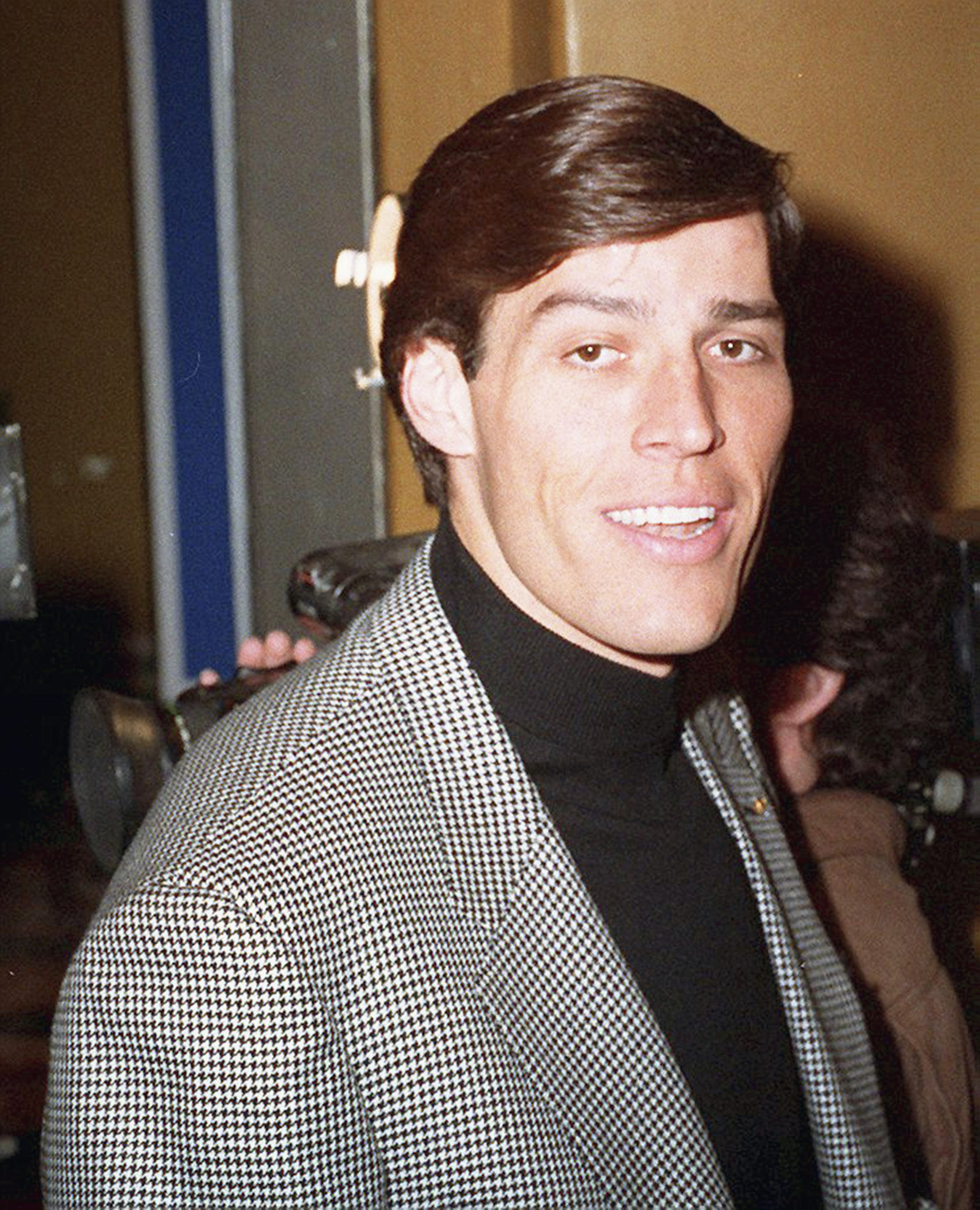
Like so many of his fans, Tony Robbins found self-help at a moment of need. In interviews and writings, he has described how an “incredibly violent” childhood and a mother with alcoholism left him “floundering and fat,” grindingly poor, and lonely to the point of “emotional death.” But at 17 he scraped together enough cash from a gig as a janitor to see the motivational speaker Jim Rohn, and was “mesmerized” by the message that change starts from within.
It was the 1970s, and Robbins delved deep into the era’s proliferating personal-improvement literature. Once he had learned how to stop thinking of himself as a victim and overcome his pain, he became determined to show others how to do it too.
Robbins had natural charisma and dominated the stage at 6-foot-7, with a gravelly baritone voice. He started drawing sizable crowds to seminars promising to “unleash the power within.” As business boomed, it became a pillar of his own self-help story, which he told and retold to eager audiences. He had lost “thirty-eight pounds of fat,” married “the woman of my dreams,” and ditched his tiny apartment for a Spanish-style castle in Southern California.
But Robbins told Charlie Rose in a 2000 interview that what really “made my career” was calling the bluff of a psychiatrist who had phoned into a radio show to attack him as a “charlatan.”
“Give me your patient, I’ll be at the Holiday Inn tomorrow night.”
Robbins said he had thrown down a challenge: “Give me your patient, I’ll be at the Holiday Inn tomorrow night.” He claimed he quickly cured a patient the psychiatrist had been treating for seven years for snake phobia. He had even wrapped a snake around her. “It was like this shootout,” he told Rose. “It was like a movie.”
A flair for the dramatic accelerated his rise. He persuaded audience members that they could walk over hot coals, psyching them up with drums and chants of “YES, YES, YES!” It was proof of what positive thinking could accomplish, he explained in his 1986 debut book, Unlimited Power: The New Science of Personal Achievement.
Robbins started touring around the country, amassing an army of volunteers who often worked 12- to 18-hour shifts to keep his shows running. “You don’t have any food, you’re literally in the room until Tony gives you permission to go for a break, you hardly get any sleep,” said Jon Richelieu-Booth, a former Robbins volunteer. They were not rewarded with a wage or travel expenses — but they did get to hear him speak for free.
In 2018, Robbins’ company confidentially resolved a class action lawsuit over these unpaid hours, arguing that the volunteers are “providing services for their own pleasure, education and enjoyment,” according to a settlement notice obtained by BuzzFeed News. Robbins’ lawyers told BuzzFeed News the company “vehemently denies” violating labor laws and settled the case “in order to avoid the time and disruption.”
Robbins pledged that his methods could help just about anyone. He knew from his own experience that abuse and depression didn’t have to weigh you down. It was a choice: “In one stroke,” he wrote, “I had purged my vocabulary of disempowering language and thus a feeling that can devastate even the stoutest of hearts.”
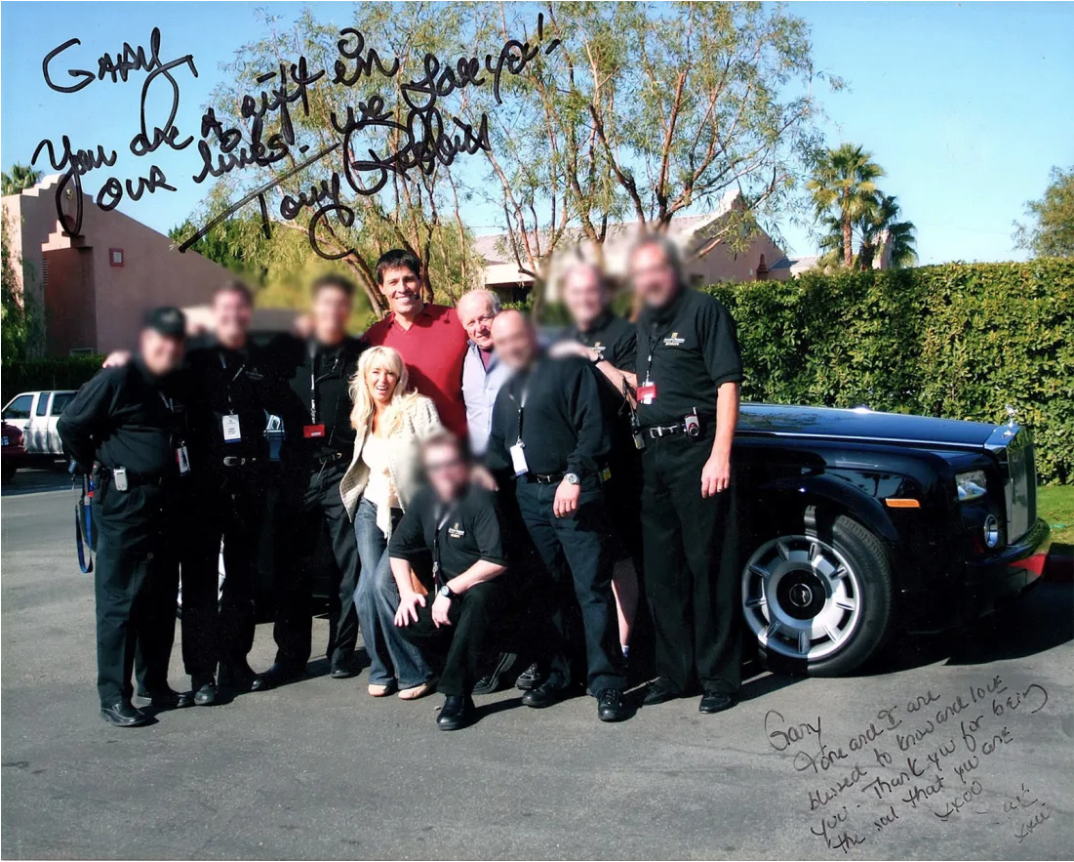
In 1991, Gary King was holed up inside his Florida home in a deep depression. A former powerboat racer with a love of floral shirts, King had built a career in event management, but the recent breakup of his relationship had left him unable to work and suicidal. “I was a broken person,” he told BuzzFeed News.
A friend told him he should try out a Robbins event nearby, and right away, King said he found the event’s “high energy” and “euphoria” addictive. He felt his depression lifting, and handed over around $600 to sign up for the next event, going on to volunteer for a few years before a contract opened up as Robbins’ director of security in 1994. King jumped at the chance.
King was soon spending many of his waking hours with Robbins, traveling the world with him, carrying his luggage, and even sometimes accompanying him to the bathroom. At first he revered Robbins as “some kind of savior,” King said — but two decades in the guru’s inner world would leave him with troubling questions about much of what he witnessed. Robbins’ lawyers said King was “disgruntled” and “unreliable.”
Robbins demanded relentless energy and a willingness to confront your darkest fears. He spoke openly about his use of “taboo language,” humor, and other shock tactics to try to shake fans out of emotional stagnation — often swearing, berating audience members, and talking graphically about sex — and he didn’t censor himself even when addressing his most troubled fans. For some, this led to ecstasy. Others found his events mentally and physically shattering.
King said he soon found that a key part of his job involved responding to calls about participants who had threatened or attempted suicide or needed to be hospitalized after suffering mental breakdowns. At one 1995 Life Mastery event in Hawaii, he said he had to intervene after one participant started biting members of the hotel’s security staff and guests. “I was dealing with crisis and emotional meltdowns from the start,” he told BuzzFeed News.
“Date With Destiny” events could be especially difficult. The six-day program, which currently costs as much as $7,995 per person, left little time for sleep or rest and was packed with soul-searching activities and deeply personal “interventions” in which Robbins selected audience members to publicly unpack their despair.
After a March 2003 Date With Destiny in Australia, Robbins held court in a “debriefing” session with his staff. A transcript of that session was made so that Robbins could pull out material for his next book. BuzzFeed News obtained a copy.
One woman had told him through tears that she had been raped. Robbins recounted how he had “cut her off” in a “warm” and “elegant” way and informed her that she was “fucking using all this stuff to try and control men.”
“I don’t support anybody fucking raping her or taking advantage of her,” he said, according to the transcript, “but I don’t support her fucking manipulating herself, men, and other people by trying to use that tool when it’s really not the primary experience of her life now.”
“Women’s torment is that men fucking look, and men’s torment is that women are fucking insane.”
By now, Robbins had set himself up as an authority on relationships, dispensing a theory about “two opposing energies — masculine and feminine.”
“Women’s torment is that men fucking look, and men’s torment is that women are fucking insane,” he said at the same 2003 event.
Robbins also described using “orgasm or masturbation” as “humor” to break a suicidal woman’s “pattern” at another event, the transcript shows. He also told a woman struggling with relationship issues to grab her breasts.
“I said ‘which breast is more sensitive,’ she said ‘my right breast’ and I said ‘I know,’” Robbins said, according to the transcript. “I just watched her face. It just freaked her out that I knew which one of her breasts was more sensitive.”
Have you had experiences with Tony Robbins that you would like to share? To learn how to reach us securely, go to tips.buzzfeed.com. You can also email us at tips@buzzfeed.com.
Robbins’ lawyers said “none of the participants at those events ever raised any concern or made any complaint that Mr. Robbins’ statements or conduct were inappropriate or harmful in any manner.”
Gary King said this was the sort of line he had often heard Robbins use to distract nervous women during fire-walks: “Which one of your breasts is bigger?” And by now, he had reason to believe that Robbins’ intimate interest in his female fans was more than just professional.
King said that Robbins often dispatched him to get the phone numbers of attractive women in the audience, an allegation which Robbins' lawyers fiercely denied. Though he felt deep down that what he saw wasn’t right, King said his entire world revolved around Robbins, so he tried to bury his discomfort. But as time went on, he said, his concerns grew. “Ultimate power corrupts,” King said. “I watched it like a movie unfolding.”
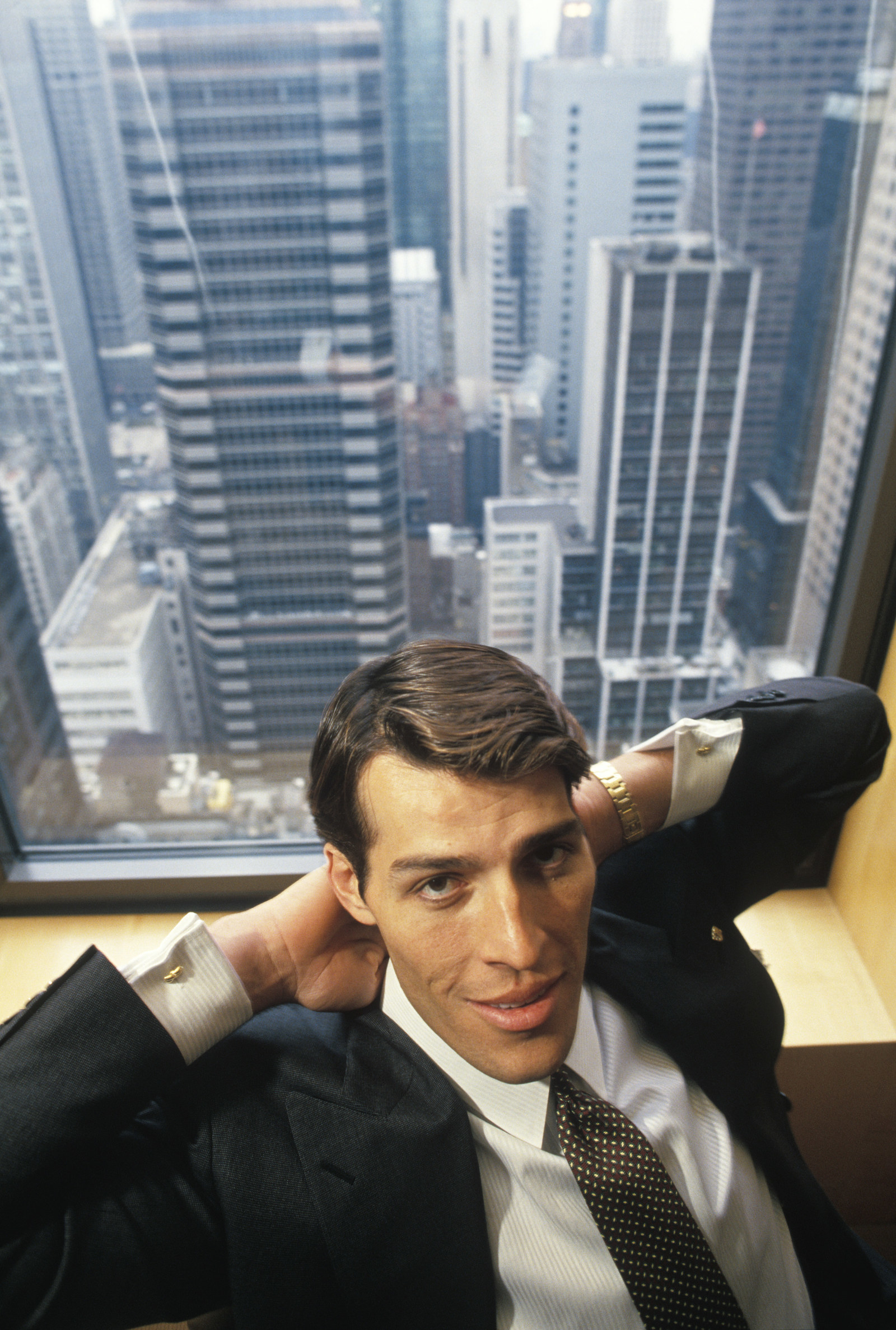
Marie, a young woman living in California, was in such a dark place that she was making plans to drive her car off a cliff near her home — until she saw Tony Robbins on a television infomercial. The more she learned about his teachings, the more she began to believe she could save herself.
At her first seminar, in Newport Beach in 1999, Robbins walked up to her in the crowd and tapped her on the shoulder. “I remember everyone gasping like it was this great honor,” Marie said. He invited her onstage with several other audience members, where he hugged her tightly and whispered in her ear to find him after the event was over, Marie said. She declined, but he continued to ask for her number, she said. “I considered him my mentor and I didn’t want to blur any lines,” Marie said. Like others, Marie spoke with BuzzFeed News on the condition that her full name not be used.
Robbins denied Marie’s allegations, and his lawyers said he had never engaged in any “inappropriate sexual behavior.” They said his microphone would have made it impossible for him to whisper anything while he was on stage without it being broadcasted to the whole crowd.
Despite her discomfort, Marie came away from the seminar feeling more upbeat than she had in a while. So she went back to other events, including a Date With Destiny seminar in Miami. There, one of Robbins’ bodyguards stopped her in the bustling hallway. “Tony sent me to take you to his room,” she remembered him saying. The bodyguard kept his eyes on the ground, she recalled, and told her she was “too good for this”: “If it’s not you that goes to his room, it’s going to be somebody else,” she remembered him saying. Again, she declined.
BuzzFeed News tracked down that former bodyguard, who spent more than a decade working for Robbins. He said on condition of anonymity that, while he could not recall this specific occasion, his former boss did give him notes to pass to “young, attractive women” and he witnessed Robbins make direct advances to women in the crowd.
Robbins’ vehemently denied that he had “authorized or participated in any systematic selection of event audience members for personal intimate sexual encounters backstage.” His lawyers said he “openly admits that he had consensual relationships with women, many of whom aggressively sought him out.”
Robbins has indeed spoken publicly about the attention he has received from female fans. “They’d send me their panties and show up at events in limousines to get through security, or turn up at my house to convince me they had an offer I couldn’t refuse,” he told Playboy in 2013. “I was beyond tempted at times. There was no drought, for sure. I was like a kid in a candy store.”
The bodyguard confirmed that many women sought Robbins’ attention. It was a different time, when people had “completely different beliefs, values, and rules.” But some women had clearly not welcomed Robbins’ advances, he said. “It’s who he is to take advantage of women.”
Both Heather Porter, a former event manager, and Miki Knowles, who worked as Robbins’ personal chef, recalled hearing colleagues describe how the security team would pluck women from the audience on Robbins’ behalf. “The security guys would tell stories about women they’d had to take up to his room,” Knowles said. Lavely & Singer said that both women referenced their work with Robbins in a positive light in their online profiles.
Robbins went on to approach Marie directly at that Florida event, she said. As the seminar came to a euphoric close around 2 a.m., she heard him shout, “Come here!” across the crowd. Robbins clamped his hand over Marie’s arm, she told BuzzFeed News, and pulled her toward the greenroom. She twisted free and melted into the crowd, she said, hoping he would lose sight of her.
Still, Marie could not tear herself away from Robbins’ world — a common theme among people who said they had experienced behavior that crossed a line but continued to work with him for years.
Marie still believed Robbins’ message was invaluable. “I knew that had saved my life,” she said, and she wanted to help save others. So she became more deeply involved, first as an unpaid volunteer — and then as an employee.
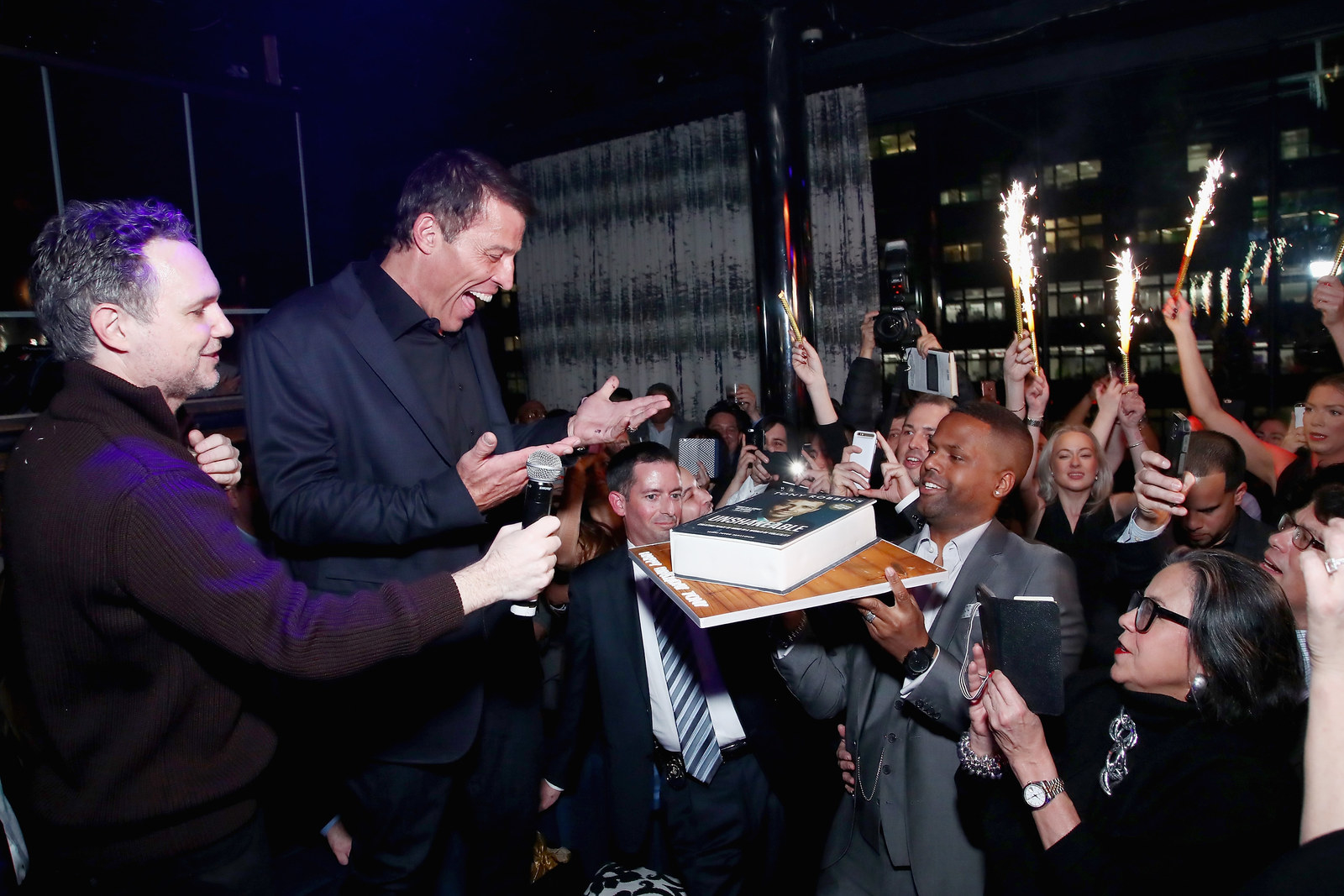
By the early 2000s, Robbins’ business empire was flourishing: He had sold millions of self-help tapes and books, become a TV infomercial star, and was attracting audiences of thousands all over the world. Many women who worked at Robbins Research International — his San Diego–based company — said they loved the experience. One former employee, Marie Kozak, said there was “never a stray hand or a wrong look.” Traci Porterfield, who worked as an HR executive from 2004 until 2009, said the job “literally changed the trajectory of my life.” In around five years, she said she never received any sexual harassment complaints.
But other former employees and volunteers told a different story.
One former personal assistant, who said she worked for Robbins for around 18 months in the 1990s, said he made her take notes while he showered. “He would call you into the bathroom with him. ‘Hey come here, I need you to make a note of something,’” she said. “He just didn’t care, he was too powerful.”
The assistant, who was then in her twenties and asked to be identified only as “B.,” said on one occasion, Robbins came out of the shower when she was working in his hotel room and dropped his towel. She shouted at him to cover up, she said, then left in tears. “I called my parents,” she said, “and I was like, ‘What in the world makes him think I would want any part of that?’”
B.’s mother confirmed that her daughter complained about Robbins’ sexual advances at the time.
B. first told BuzzFeed News she wanted to tell her story using her full name, but later changed her mind, citing her fear of Robbins.
“To the extent that he may have been unclothed at various times in his home or in hotels when working while either dressing or showering, and whether a personal assistant may have been present for some reason at that time, Mr. Robbins has no recollection.”
Kate Rittase, who worked for Robbins from the late 1990s to early 2000s, also told BuzzFeed News that she had to work with him while he was nude. “My job would be to get him out of bed in the morning so I’d wake up and pull his naked butt out of bed,” she said. “I had to get his naked butt into the shower and into his suit.” Robbins would also call her into the bathroom while he showered, she said. “I guess some people would think it was weird,” she said, but she just saw it as part of the job. “Yes I could be a victim, I could go down the victim road but I just chose not to.”
She said she was careful never to be in the room with him when he was naked unless he needed something, and “never put myself in a position of being vulnerable or exploited.” Robbins seminars were “life transforming” for her and her family, she added.
A fourth woman, Kay, joined Robbins’ crew in the late ‘90s. She told BuzzFeed News that he singled her out immediately, frequently telling her she was beautiful. Over the next few years, she said he encouraged her to end two separate relationships, offered to fly her out to visit him, and gave her a secret phone number. The more she refused him, she said, the more he “relentlessly” pursued her.
“It’s part of what he teaches: Go after what you want,” she said. “And he wants to acquire you as a woman.”
Kay recalled one seminar where Robbins told the crowd to imagine they were having an orgasm. He then stepped down and whispered in her ear, “I wanna see you have an orgasm,” she told BuzzFeed News. Again, Kay refused. “I’m not showing you anything,” she recalled thinking, “that feeds that monster.”
Robbins’ lawyers said Kay’s accusations were “false and preposterous.” They said Robbins wore a microphone at all times while he was on stage and his events are typically recorded from start to finish using multiple cameras.
Kay stayed in Robbins’ universe until 2001. A friend of Kay’s told BuzzFeed News that about a decade ago, Kay disclosed to her that Robbins had repeatedly hit on her.
Kay first told BuzzFeed News she wanted to speak publicly about what happened, then changed her mind, and spoke on condition that her full name not be used. “He’s very connected, he’s very powerful, and he’s very wealthy and able to squash bugs,” Kay told BuzzFeed News. “And we’re the bugs.”
“He’s very connected, he’s very powerful, and he’s able to squash bugs...and we’re the bugs.”
One former staffer who did consent to a sexual relationship with Robbins said she came to regret it. The woman, who asked to be identified only as J., worked as Robbins’ personal assistant in the 1990s, when she was in her twenties and he was more than a decade older. They began an affair soon after they started working together, J. said, but she was fired after his then-wife became suspicious.
Distraught, J. turned to a friend, attorney Ron Blumberg, who told her she had a strong legal case for sexual harassment and unfair dismissal, in part because of the “difference in power” between the two parties.
“He was on a pedestal as few celebrities in any field were at the time,” Blumberg told BuzzFeed News. “Everything about him — his looks, his demeanor, his money — was crafted to define himself as having extreme power.”
Both J. and Blumberg said they met with Robbins’ lawyer. Afterward, J. told BuzzFeed News, she was “scared to death.” So she never brought a case.
Robbins’ lawyers said he denied J.’s claims “generally and specifically.”
J. said it took her time to make sense of the experience. She remained in touch with him for several years after she was fired.
J. was not the only former Robbins employee who claimed she was unfairly dismissed after his sexual attentions turned sour. Marie said that Robbins stopped making direct advances after she started working for him, but still made her feel “totally violated” at times by staring at her breasts and stomach. Still, she stayed at his company for years. When people asked why she stood by him, she said she would tell them, “Listen to the message, not the messenger.”
Then one day in the mid-2000s, a senior manager called her to a meeting at an empty hotel restaurant in the middle of a Robbins event and fired her on the spot. Marie said she received no explanation for her firing.
But speaking to BuzzFeed News on condition of anonymity, one employee with knowledge of the incident explained the decision to fire Marie: An order came from above that she had to go because she was “obsessed” with Robbins. This was not the first time a woman had been fired for similar reasons, that employee said.
“I felt like I was being disfellowshipped from a religion.”
Robbins’ lawyers denied Marie’s allegations, and said that he “is not involved in the day-to-day operations” of his company, “including the hiring and firing of employees.”
Marie said she was ostracized by many of the people she was close with in Robbins’ orbit. “I felt like I was being disfellowshipped from a religion,” she said.
The day she was fired, she was ordered to head back to her hotel room, pack her belongings, and get in a taxi straight to the airport. Gary King escorted her away.
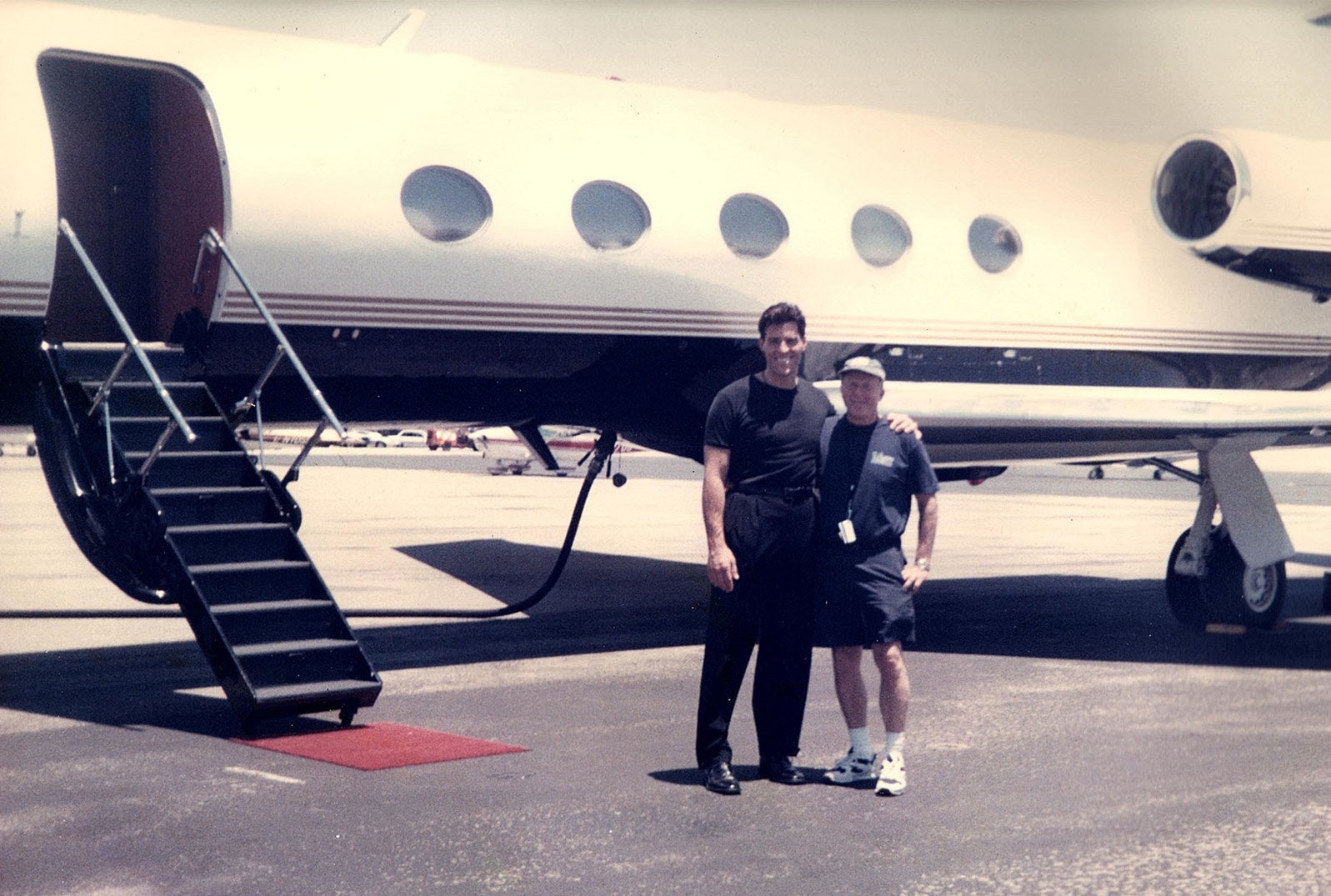
King still believed that Robbins was a force for good. And he enjoyed sharing the perks of superstardom — golf outings, global travel, and standing next to Oprah as she did a firewalk with Robbins on TV.
But when his son, who had depression, killed himself, King’s concerns about the mental health of Robbins’ more vulnerable followers grew more acute.
In 2014, a man wrote to the Robbins organization to complain that his wife had collapsed and begun hallucinating after a Date With Destiny event — believing a clock was moving backward and a lightbulb was the moon. A staffer had advised him that this was not uncommon and she would be “back to normal” the following day, yet his wife had continued to hallucinate after being admitted to the hospital, and remained in a “poor” mental state months after the event, the man wrote. The couple did not respond to repeated requests from BuzzFeed News for comment.
An employee forwarded the email to King. “The reality is, there is collateral emotional and physical damage at DWD [Date With Destiny], there always has been,” King replied. “In a room full of every personality disorder and personal emotional need and financial need, it goes without saying.” He said he had flagged the problem repeatedly, but “it falls short of being taken seriously enough.”
“The reality is, there is collateral emotional and physical damage ... It falls short of being taken seriously enough.”
Glen Lechtanski, who was a registered emergency nurse during more than a decade spent volunteering for Robbins, including as director of medical operations for his live events, told BuzzFeed News that he too had witnessed participants becoming “mentally unstable” due to a lack of sleep, water, and food.
Lechtanski also recalled treating dozens of participants with second-degree burns from a 2012 San Jose firewalk. “He’s been taking risks with everyone’s health and safety,” he said.
Robbins’ lawyers said Lechtanski was terminated from his volunteer position “based on certain inappropriate conduct,” and that as a result he, like King, had become “disgruntled” towards Robbins’ company. Lechtanski said he had been let go for taking fan merchandise such as CDs and vitamins from Robbins’ product tables to hand out to the team of volunteers he oversaw in lieu of pay.
Todd Spendley spent a decade working for Robbins as a logistics contractor but left in 2014 after growing increasingly disturbed by the way the company was run. At one Palm Springs, California, event, Spendley said he witnessed a fan experience “what I would describe as a seizure, or a sort of mental and physical breakdown.” Robbins staffers attempted to help him themselves instead of calling an ambulance, Spendley said. “I realized that many of these trainers had no qualifications besides being trained by Tony,” Spendley said. “I felt like there was no regulation, and very little protection if someone was vulnerable.”
Robbins’ lawyer said his events are “fully staffed with a team of security personnel, medical personnel, coaches and trainers who are available at all times.”
In 2014, Robbins let a documentary filmmaker inside a Date With Destiny event to produce a film called I Am Not Your Guru. As always, the access to his private world was tightly controlled. Robbins struck a deal with the director allowing him to cancel filming at any time during the six-day seminar and retain ownership of the footage if he chose.
In the documentary, Robbins said staff kept a keen eye on people in the audience with serious mental health issues.
In one scene, a young woman told Robbins she was sexually abused while growing up in a Christian cult. Robbins’ response was to instruct her to pick three men, all strangers, out of the crowd to serve as “uncles” to watch over her for the next “10 years.” Later, he acknowledged that he had never “dealt with this issue or anything like this before, obviously.” Citing her book about the experience, Robbins’ lawyers said that the woman’s “breakthrough and transformation speaks for itself.”
When it debuted on Netflix in 2016, critics panned the film as “almost fawning” and “self-help snake oil.” The New York Times dismissed it as a “missed opportunity” to analyze how Robbins’ “peacocking dominance” inspired a “near-religious devotion” from his audience. “There are no in-depth interviews with employees or family members and no negative experiences,” the reviewer noted.
King and another person at the event said film crews shot footage of a woman on the foyer floor screaming while Robbins staff tried to help her. Another employee later told King that this woman then tried to jump out of a hotel window, King said.
The scene didn’t make it into the documentary. The film’s director said it was because she refused to sign a release form. “I was not asked to nor did I make a ‘fawning’ film,” he said, adding viewers could draw their own conclusions about Robbins.
By now, King was at the end of his rope. After working a seminar in London in March 2015, King sent a one-sentence email: “Effective Immediately, I resign from responsibilities and communication with RRI.”
Over the next few years, King would reinvent himself as an “international happiness expert.” Lavely & Singer said King had a “self-interest” in attacking Robbins because he viewed him as a competitor.
King said he did his best to move on with his life. But in 2018, a woman reached out to King in a state of distress about Robbins. “Please get in touch with me,” she wrote. The woman declined to be interviewed for this story, but BuzzFeed News reviewed her correspondence with King.
By then, the #MeToo movement was in full effect, and King started hearing from others who used to be in Robbins’ orbit. He began to wonder about how those women he had approached on Robbins' behalf might have felt.
At the encouragement of a friend, he reached out to a reporter at BuzzFeed News. “It’s a classic case of nobody will come forward,” he wrote in one email, “because they fear his money and power.” It was time to change that, he said.
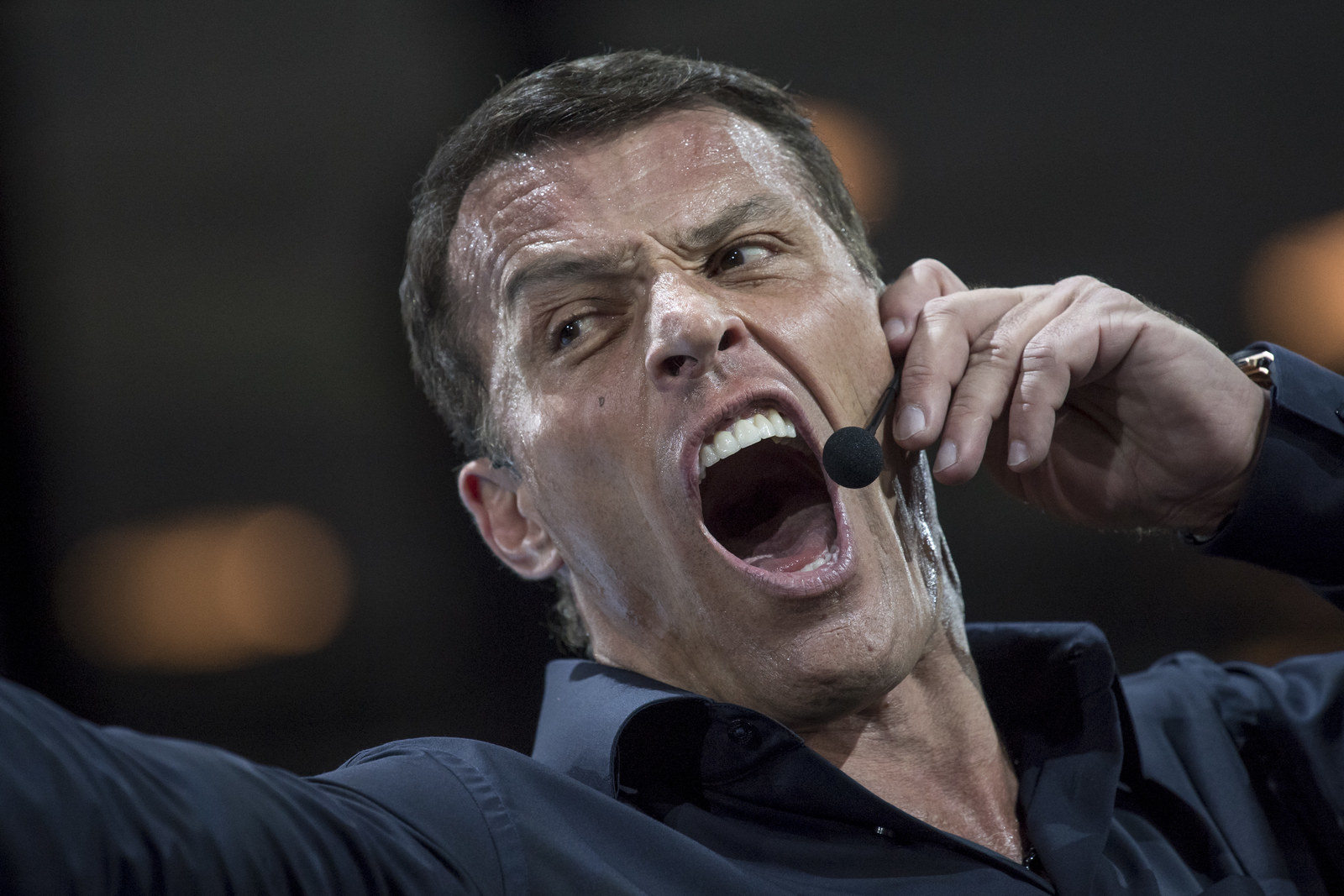
A couple of months later, Robbins faced his first real backlash, after he was filmed criticizing the #MeToo movement.
Robbins also praised the casino magnate Steve Wynn, who had recently been accused of sexual harassment. He said he knew a “dozen” men who were afraid of hiring attractive women because it posed too big a risk.
This was a rare moment: footage from inside Robbins’ world released outside of his tight control.
Robbins apologized, but less than two weeks later, secret footage obtained by BuzzFeed News captured him pointing out a fan at a London show whom he called “attractive as hell” before declaring he wanted her to “come up onstage and make love to me.”
And in December 2018, Robbins was in Palm Beach, Florida, for another Date With Destiny event. A woman stepped up to the microphone. Speaking softly, she told Robbins that her husband had emotionally abused her.
That set Robbins off. In a 50-minute secret recording obtained by BuzzFeed News, he launched into a tirade, punctuated with expletive-laden questions. “What the fuck is emotional abuse?” he asked the woman. “Are we that fucking weak that someone can’t tell you with passion what they fucking feel without them abusing you?”
“Are we that fucking weak that someone can’t tell you with passion what they fucking feel without them abusing you?”
“She’s focused on her needs,” he went on. “We’ve not heard one thing in the last 12 minutes about his needs. And we’re already characterizing it as emotional violence. There’s no fucking thing.”
“There has been physical violence,” the woman clarified soon after.
“What led to that?” Robbins shot back. “What role did you play? I'm not suggesting there’s any excuse for hitting a woman, so hear me, but I also want you to know that people don’t just act a certain fucking way.”
When the woman tentatively began to describe the violence — details she asked BuzzFeed News not to publish — Robbins interrupted her and said her husband “sounds like somebody that actually wants to engage with you because he loves you.”
“What I find when I usually dig in,” he later said, “is what they call abuse is a relabeling of ‘they didn’t like what the person said or did.’” He later turned back to the crowd. “She’s lying to herself,” he said. “She’s done it so often she doesn’t even know the difference between a truth and a lie anymore."
“Has he loved you?” Robbins went on. “Has he looked out for you, does he put up with you when you’ve been a crazy bitch? Have you ever been a crazy bitch? Ever?”
“Probably, yes,” the woman answered, her voice shaky. The crowd laughed. The song “Why Does My Heart Feel So Bad?” by Moby began to play on the speakers.
In an interview with BuzzFeed News, the woman said she understood why people would find Robbins’ comments upsetting. But she was able to take “whatever served” her from the intervention even if she didn’t feel everything Robbins said applied to her situation. “I didn’t take it personally,” she said.
“Does he put up with you when you've been a crazy bitch?”
Robbins’ team attended to her afterward, and with their help, the woman realized she “had a self-love issue,” she said. (Both the woman and Robbins’ lawyers said there was a follow-up portion but declined to provide the recording to BuzzFeed News.) The experience helped her discover her own agency and sever ties with her husband for good. She later published an account thanking Robbins for his teachings.
“In no way, shape, or form I would like to give the wrong impression that I found the interaction with Tony to be damaging to me or that I found it not useful,” she said. She also repeatedly asked to make clear she was not the person who had leaked the audio, and therefore had not violated the rules of the event.
Experts in domestic violence who reviewed the 50-minute transcript voiced serious concerns about the encounter.
“In some ways, the dynamics of Robbins’ relationships with the women in these workshops is essentially the same as the dynamics of the abuse that may have brought them to him in the first place,” said Leigh Goodmark, a professor and director of the Gender Violence Clinic at the University of Maryland Carey School of Law.
“I’m glad that experience was empowering for her, but another survivor sitting in that room might have felt like she was being ridiculed and her experiences were being dismissed,” she said.
“There is no context that would make this okay,” said Latifa Lyles, an executive at the National Network to End Domestic Violence.
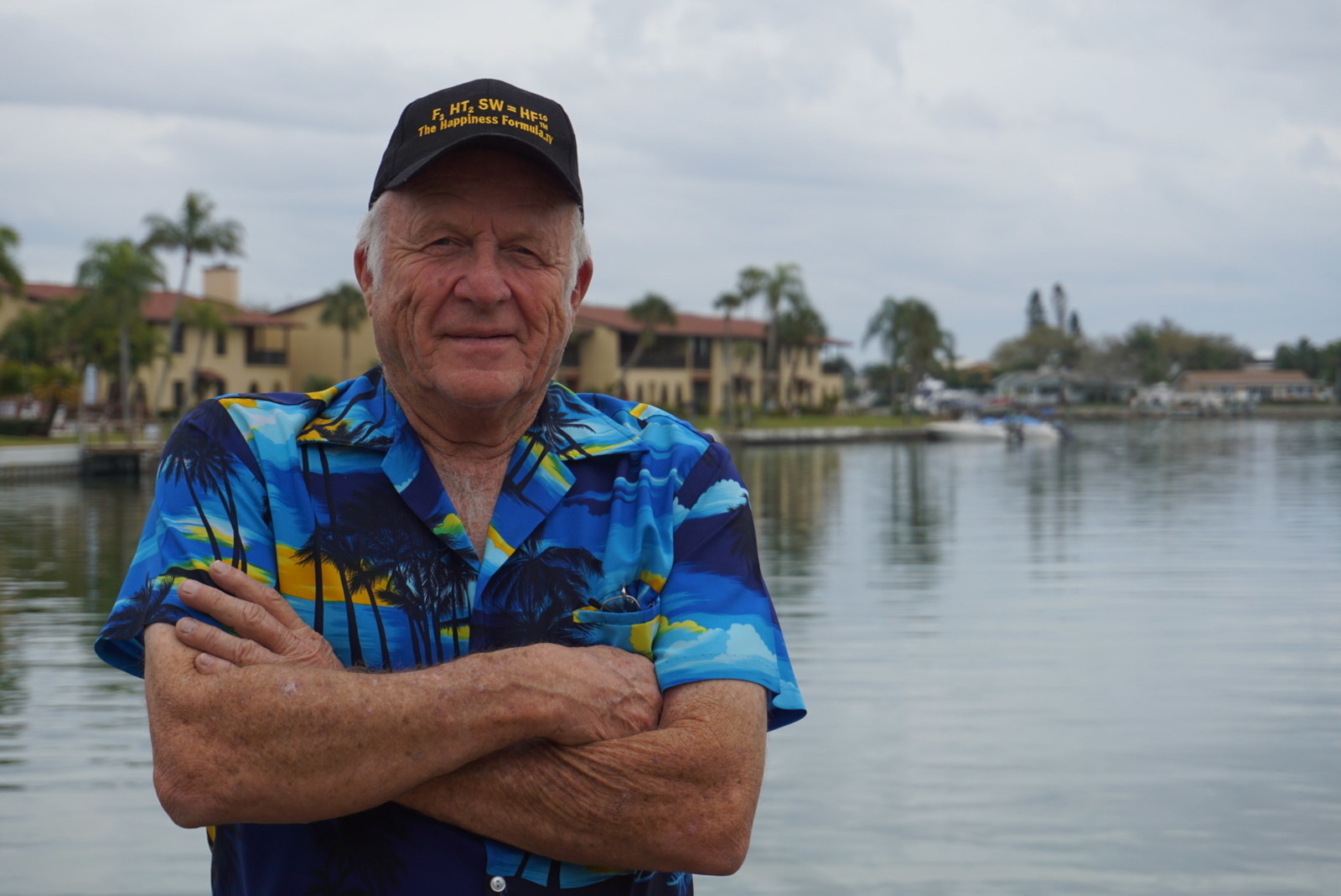
One morning in late November 2018, Gary King received a threatening letter from Lavely & Singer, the famously aggressive Hollywood law firm whose founder once told the New York Times its “goal is to try to kill the story.”
“We have been informed by several individuals that you are the source of false and malicious information and rumors that have been provided to on-line publication BuzzFeed,” the letter read.
The firm warned King that his conduct could cost him a fortune if he didn’t take back everything he had already said within 48 hours and promise not to make any more “defamatory” accusations against Robbins.
King’s lawyer responded that the threats were triggering the post-traumatic stress disorder he had developed after his son’s suicide. Lavely & Singer replied that King had “no one to blame other than himself.”
King received a third letter from Lavely & Singer in February. “We are informed that Mr King met with BuzzFeed reporter, Jane Bradley, last week in Florida.”
In April, in-house attorneys at Robbins Research International sent out a new nondisclosure agreement to staff. It demanded not just silence but also a promise to take action to stop their colleagues from disclosing “Confidential Information.” If they breached the NDA they would have to pay Robbins up to $100,000 in damages.
Lavely & Singer also sent threats to another staffer accused of speaking with BuzzFeed News. Unlike others in Robbins’ orbit, the man said he had never signed an NDA. Yet one letter, reviewed by BuzzFeed News, warned that if he did not retract his story, “Your life will be forever changed.”
He also received text messages from a former colleague asking him to pass on information about BuzzFeed News to Robbins’ team. He said that the colleague told him he could receive an unspecified “reward” if he did so. That same woman had previously spoken with BuzzFeed News herself claiming to have been a victim of sexual harassment by an event leader who worked for Robbins’ company — but failed to produce any evidence. In May, an attorney for Robbins wrote to the staffer to say that a goodwill payment of $3,485 could be available to him on the condition that he sign a legal document agreeing not to cooperate with the BuzzFeed News investigation. He refused.
Employee NDAs are “common and standard in the industry,” Lavely & Singer said. The idea that Robbins’ company conducts its business with “intense secrecy” is “misplaced and sophomoric.” Lavely & Singer denied that it is an “aggressive firm” saying, “we merely apply existing law to counter and preclude illegal conduct by others, including individuals who would publish false and defamatory statements regarding our clients.”
The firm’s threats serve as “an example of using the law to silence people and keep conduct in the dark,” said Fatima Goss Graves, president of the National Women’s Law Center and cofounder of the Time’s Up Legal Defense Fund. “In the era of #MeToo, more and more people feel emboldened to speak out,” she said. Threats such as the ones Lavely & Singer directed to people in Tony Robbins’ orbit “are sending a reminder: ‘You are not as powerful as you think.’”
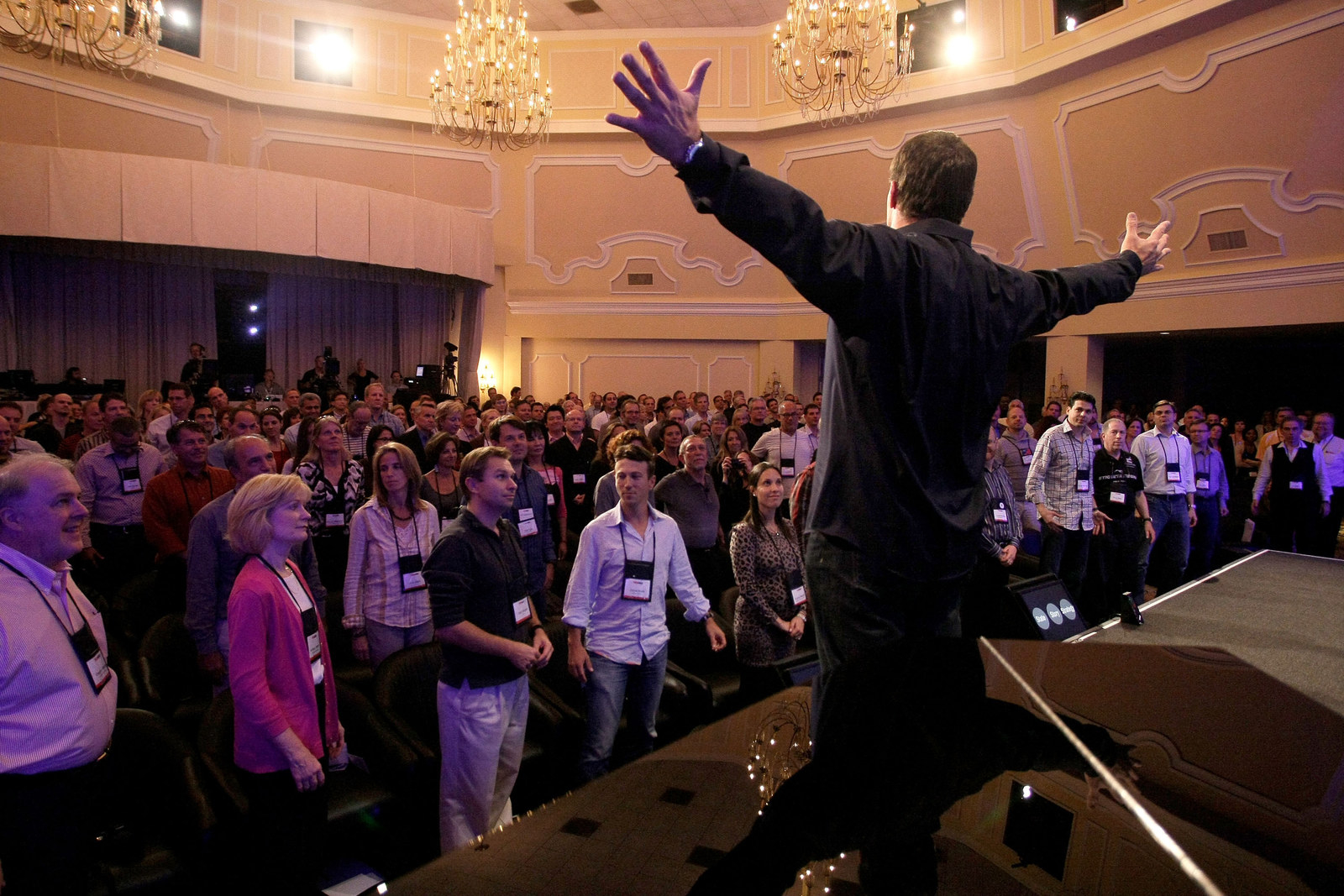
Gary King said he decided to speak out as a gesture of solidarity with the women who felt too scared to come forward. “Nothing is more important than your character in life,” King said. “Knowing I knew all that stuff that went on and I didn’t do anything about it? I couldn’t function like that.”
Though each of the women who backed away from speaking on the record about Robbins said they were afraid, some also gave more complex reasons.
To this day, Marie believes Robbins’ work “saves and changes lives.” In fact she said it helped her not to see herself as a victim when she grapples with the way he treated her. “It’s easy to blame someone else for our problems however we don't grow or change by doing so,” she told BuzzFeed News in one email. “While I may not agree with everything Tony does as a person, I am forever grateful for the gift Tony’s been in my life.”
After years of therapy, she is still struggling to recover from her experiences in Robbins’ inner sanctum. “I had so much confidence and was so strong and powerful in how I saw myself,” she said. “I haven’t gotten that back.” ●
Opening art: Benjamin Lowy / Getty Images; illustrations by Akiko Stehrenberger for BuzzFeed News.
[Editor’s note: The maker of I Am Not Your Guru also directed a documentary based on reporting by Katie J.M. Baker, one of the reporters of this piece.]



